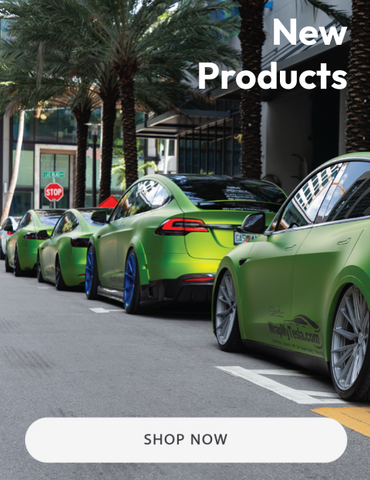Former Tesla factory head gives 3 supply chain tips to upstart electric automakers
Today’s auto industry is embracing electric vehicles, but the new competition is exacerbating a still-ongoing supply chain crisis. Tesla is well-poised for upcoming EV targets such as California’s 2035 gas vehicle sales ban, but automakers new and old are scrambling to get the raw materials needed for long-term battery manufacturing needs.
Former Tesla Gigafactory executive turned lithium advisor David Deak noted a few ways EV startups can outlast the supply chain crisis, as reported by Business Insider. Legacy automakers and EV startups both face challenging circumstances, but following in Tesla’s footsteps could help them navigate through the current climate.
Deak worked at Tesla for two years, starting around the time the automaker broke ground on its first “Gigafactory” in 2014.
Deak led Tesla’s battery-engineering and supply-chain operations at Gigafactory 1 in Sparks, Nevada from 2014 to 2016, after serving as chief technology officer at Lithium Americas and as president of Lithium Nevada Corp. Currently, Deak is on the board of directors for battery-architecture startup Addionics, and he’s the president of mining, energy and tech advisory at Marbex.
For one, Deak notes that companies need to secure their supply chains through strategies like Tesla’s vertical integration.
Deak said the current raw materials shortage and increased competition facing automakers is "an existential threat to their ambitions.” However, Deak says if automakers can secure their supply chains and build EVs consumers want to buy, they’ll be more likely to make it through today’s market.
"If you navigate those two things, you probably make it,” said Deak. "Everyone's going to have to source their lithium somewhere. It’s not just going to be a question of cost. It's also going to be a question of whether that material is there.”
"You've got to make sure that the product that you're introducing to the market really is desired," Deak added. "You want a car that can accelerate like a Porsche or a Ferrari, but then also be able to transport your family on family vacations or for regular commuting."
However, newer EV automakers such as Lucid Motors, Rivian, Nikola and others may not be as well-equipped to woo supply contracts.
Deak says EV startups "don't have the kind of weight of a Tesla, Ford, GM," adding that "suppliers will want to gravitate towards those who will have guaranteed large volumes.”
Still, even underdog EV startups may be able to navigate the terrain if they can prioritize cash spending well, according to Deak.
"As the Western world more broadly navigates into the electric-vehicle world, if you want to diversify in supply chain, you're not going to get it without a lot of investment and a lot of work," Deak said.
"You have to do things in a way where your burn rate, your cash spending, does not exceed your revenue."
===
Source: Business Insider




